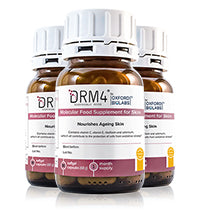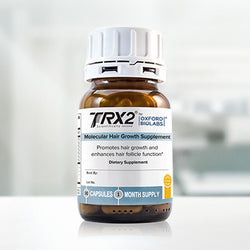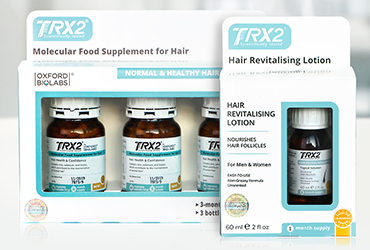Your mood and your mental health in general are largely dependent on several factors, including how much sleep you get, how much exercise you do, and the foods that you eat consistently. This article focuses on how nutrition affects your mental health, which is intrinsically linked to your moods. Science has confirmed that there is a link between micronutrients and mental health, which means that we should be careful to include ‘feel good foods’ in our diets as standard, while avoiding their opposites.
Since our mood can influence our food choices, we are prone to ‘indulging’ in poor quality ‘comfort foods’ when we are feeling emotionally low. Sugary, fatty and processed foods are linked to depression and poor brain health, which (as you might imagine) can easily create a vicious cycle. Conversely, health-conscious individuals may naturally gravitate toward better quality foods with a higher nutritional content; often foods that give them the kind of nutrients that lead to positive moods and mindsets.
Why do micronutrients influence mental health?
The first pertinent question to answer would be, what is a micronutrient? We have both macronutrients and micronutrients, and macronutrients are the nutrients you need to consume larger amounts of. For instance, protein, carbs and fats, which provide essential energy in the form of calories. Micronutrients are the nutrients you require in smaller amounts, such as vitamins and minerals.
The benefits of micronutrients are many, but when it comes to mental health, there is a simple reason why micronutrients affect your mood: they play a vital role in the metabolic processes of the brain. They are necessary for various general cellular functions and neurologic activities, such as the synthesis of dopamine, serotonin, and myelin formation (the sheath that forms around nerves).
Micronutrient deficiencies can lead to low moods. For example, depression has been linked to a lack of vitamins B6 and B12, and folic acid. Likewise, a lack of vitamin D, zinc or selenium can result in depression, anxiety and generally low moods.
Which micronutrients maintain mental health?
The main micronutrients required for good mental health are:
Vitamin D
Vitamin D is a fat-soluble compound that has a major role in brain development, and deficiency can result in depression. Vitamin D is linked to serotonin, a monoamine neurotransmitter with various biological functions, including mood modulation. This neurotransmitter is often referred to as a ‘happy hormone’ (along with dopamine, oxytocin and endorphins). There are plentiful vitamin D receptors on neurons in lots of areas in your brain.
Vitamin D is best attained through sunlight, but is present in oily fish, mushrooms that have been exposed to UVB, and fortified milk.
Vitamins B1, B2, B5, B6 and B12
B vitamins are important vitamins for mental health, not least because of their crucial role in various cellular and metabolic processes. This group of vitamins plays its part in the producing the brain chemicals that result in happy, balanced moods (and subsequent mental states).
For instance, a lack of B5 (pantothenic acid) is linked to depression and anxiety, while B12 deficiency is linked to depression, irritability, dementia, mental disturbances, and moodiness. You can be sure to get a good intake of B vitamins through your diet, but supplementation is also an option.
Calcium
Low dietary calcium has been linked to depression, as well as delusions and irritability; yet interestingly, calcium can also have this effect when there is too much present in the body. ‘Hypercalcemia’ can cause neuropsychiatric dysfunction, which includes mood changes, cognitive changes and although rare, the possibility of acute psychosis.
When calcium levels are too high, you may even experience neuronal demise. The bottom line is that if you’re feeling low, it is worth having your calcium levels checked, and possibly regulated by magnesium intake.
Magnesium
Another of the minerals that support mental health is magnesium. It is one of the most important for your health in general, since it regulates other minerals in the body. It also plays a part in lots of brain chemistry processes, and when you don’t have enough of this essential mineral, you may be prone to anxiety and depression. If you’re lacking in magnesium you might expect anxiety, confusion, hyperactivity, nervousness, or restlessness.
Magnesium is found most abundantly in nuts, vegetables, whole grains, leafy greens and soy products.
Zinc
The trace element zinc supports correct immune function, but is also involved in an array of brain chemistry reactions, hence its role in good mental health. People often supplement zinc in order to improve depression symptoms. Low zinc can lead to other poor mental health symptoms such as irritability, lethargy, memory impairment and paranoia. Zinc can be found in lean meats, oysters, whole grains, pumpkin seeds and nuts.
Iron
The mineral iron has a role in transporting oxygen (and thus energy) to the brain, and many neurological activities, including a function in the enzyme system that produces neurotransmitters (your body's chemical messengers). When this mineral is lacking, you’re more likely to develop depression and anxiety. You can find high amounts of iron in unprocessed meats and liver, but it is also present in dark leafy green, grains and nuts.
Selenium
The mineral selenium has antioxidant properties, which means it is able to protect your cells from damage. Selenium deficiency can result in depressed mood, anxiety and tiredness, while high intake of dietary or supplementary selenium can have the opposite effect. It has been shown to improve mood by reducing inflammation, which may be more present in those with mood disorders like chronic anxiety. Selenium intake may also affect metabolism of thyroid hormones.
Folic acid
Studies indicate that folic acid (which is the synthetic form of folate) has positive effects on depression and low mood. A deficiency of folate (Vitamin B9) has been found in depressed people, as well as those who don’t respond well to antidepressant medications. Not enough may result in apathy, depression, insomnia, and even paranoia.
Get this essential micronutrient for good mood from broccoli, sprouts, leafy green vegetables, peas, chickpeas, kidney beans and liver.
Is the gut linked to mental health?
It is important to note the conclusions of research into gut bacteria and brain health, which strongly indicates and impact on mental health overall. Conclusions show that diminished gut microbiota can cause inflammatory responses, which in turn cause problems with brain function and your nervous system.
Interestingly, around 90% of the neurotransmitter serotonin is actually produced in the gut – while only 10% is produced in the brain! This gives us a clue about the importance of gut health, which can be improved by the introduction of beneficial microflora (bacteria).
Finally, please note that although supplementation can be very helpful, it is important to consume as many micronutrients for your mental health as part of a consistent and balanced diet of wholefoods.





















